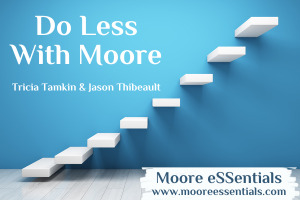If you go online right now and type in the phrase “how to prepare for an interview” you will get thousands of articles on the subject. Go ahead and do it…I’ll wait. See what I mean??
Most of the articles focus on some of the very basic elements of an interview from the candidate’s perspective:
- Be on time
- Ask good questions
- Dress professionally
- Research the company
Sound familiar? I am not suggesting that we overlook the basics because many times, candidates need some of these basics. Perhaps they haven’t interviewed in a while. Unfortunately, most articles stop after covering these elements specifically for the candidate.
As a Talent Advisor/Recruiter, whether you are an external recruiter like myself or an internal talent acquisition specialist within a company, the missing prep that matters just as much is with your own team! Our role is to ensure that both sides of the interview are fully prepared. If you recall from a previous article, you must remember that interviewing is a two-way street. Just as much as the hiring manager is interviewing the candidate, the candidate is also interviewing the hiring manager/company.
If you have a strategy call in advance of the hiring managers beginning the interview process, you will set the process up for success. After all, all of our jobs are to ultimately find the right talent to fill the critical role. You don’t get paid by the interview or by the resume. Your bonuses are not based on either of these, right? So, let’s set up the hiring managers (interviewers) to be as prepared as possible!
Here are several important elements of an effective Hiring Manager Prep:
Understand their Interview Style
It is amazing when we ask our hiring managers “what’s your interview style and what type of questions do you ask?” They are puzzled by the question. But, it is a very valid question. Do they actually know their style? Do they follow a structured interview process and purely ask questions on a form? Do they ask more behavioral questions, such as “tell me about a time when…” Do they stick with the ‘old-faithful’ questions of “tell me about yourself” or “what are your strengths and weaknesses?”
Ensuring that the people doing the interviewing have an actual game plan for the interview is critical to success or failure.
Remind your hiring manager that the candidate could be nervous…it is natural. So, the quicker they can ‘break the ice’ to build a little rapport, the quicker the candidate will become more at ease and the interview will go much smoother.
Clearly Defined Process
Do all of the people involved in the interview process know what the interviewing process will actually be? Far too many times, only some of them actually know. You want to ensure there is a clear message on the process.
Even more important is that you want to have an ACTUAL clearly defined process! Who will be involved? When? Where? What will the steps be? Can any steps be combined together to expedite the process? Who will be making the offer? Who has to approve of the offer?
Processes of the past may not work in today’s hyper-competitive market. You may need to remind your hiring manager that you need to move quickly to have a chance to get the candidate you want for the position. Having the mentality “if we lose them, we lose them” will hurt you tremendously in these market conditions.
There are very few reasons why an interview process shouldn’t be able to be completed in 7-10 days. Anything beyond this time frame will run the significant risk of losing good candidates.
Two-way Interview Reminder
As mentioned above, make sure that the people doing the interview are SELLING the opportunity, the company, and the culture. By doing so, you can help them be in a position to attract the talented professionals they desire.
Another minor, yet very important, part of the two-way reminder is that everyone’s time is valuable. We expect candidates to be on time for the interview (in person, by phone, or via zoom). Give a friendly reminder to those doing the interviewing that they should have the same respect for the candidate’s time as their own.
Communication
As part of this two-way interview process, communication with the candidate (hopefully through you) will help keep the candidate excited and engaged. This communication can be the difference in the entire process.
When a candidate understands the process and where they fit in it, it is far more likely that they will want to continue. If they are in other processes (which they probably are), as long as they know the remaining steps, they will be more likely to hold others off so they can make the best decision for themselves (and hopefully for you)
The Interview Itself
Coach the interviewers to put the candidate in the best position to show their best capabilities. Don’t try to trip them up.
Understand if there are particular things/discussion points the prospective candidates should be prepared to discuss. If there are some, prep the candidates with these points. This is much more realistic if they were working with your company than trying to ‘spring something on them.’ Wouldn’t you rather them prepared to have an intelligent and informed discussion than them ‘wing it?’
After the Interview
Ensure that everyone involved knows who to share their feedback. The quicker the feedback is shared, the quicker a decision can be made if the interviewed candidate should move on to the next step.
Is a debrief form (interview grading form) used? Is a summary paragraph to be sent or simply a thumbs up/thumbs down needed?
Every Interview is a form of PR
A final point to remember is that the interview process reflects the value your company places on each candidate and, by extension, each employee. Make sure those interviewing are good ambassadors for your company by conducting a professional interview, communicating honestly, and basing hiring decisions on an honest evaluation of each candidate's capabilities. Not only will you make great hires, but you'll build goodwill in the community and enhance your future recruiting efforts.

Chris Heinz is a Managing Partner with Westport One. With more than 24 years in the recruiting industry, he has become a thought leader in both recruiting and the healthcare industry. He is an eternal optimist while still being grounded in reality. Chris is an avid endurance athlete running more than 200+ races of all distances. He has turned that passion into good by raising thousands of dollars for several charities.





